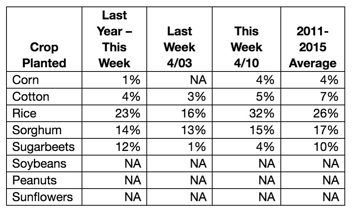
Why Concept Testing is Critical to the Success of a New Product or Service
 The business world is full of inspiring success stories, from the launch of the industry-changing iPod in 2001, to the unveiling of category-creating Google in 1998 -- and the list goes on.
The business world is full of inspiring success stories, from the launch of the industry-changing iPod in 2001, to the unveiling of category-creating Google in 1998 -- and the list goes on.
However, any belief that these astonishingly triumphant products and services were the result of “catching lightning in a bottle” or “being in the right place at the right time” is simply false. Behind the accolades and achievements lies something less glamorous and sensational, but nevertheless crucial to success: concept testing.
What is Concept Testing?
Concept testing is the exploration, analysis, evaluation and investigation of the viability of a new (or significantly renovated or improved) product or service, with a specific focus on how such an offering will -- or will not -- be favorably adopted in the marketplace and among target consumers (both B2C and B2B).
Concept testing is versatile and can be applied in a variety of ways, and at various stages of the product or service development process. Ideally however, it is conducted at the pre-launch prototype stage in order to reveal key facts and insights, including (but not limited to):
- Primary benefits and features, and how they are ranked by target consumers.
- Problem awareness (i.e. does the marketplace need to be educated first or are they ready to adopt).
- Purchase intent and benchmarking to other launches.
- Potential new buyer personas (including influencers).
- Possible barriers to adoption and market penetration success.
- Package design, branding and naming preferences.
- Various usage and use cases.
- Pricing strategies and positions.
- Distribution and shelving analysis (if applicable).
How is Concept Testing Conducted?
Typically, concept testing is conducted by a combination of surveys, focus groups and interviews (which may be conducted over the phone or in-person). Concept testing can also involve ethnographic research, which observes how individuals use and react to a new product or service, and gleans insights from their behavior and feedback.
Difference Between Concept Testing and Communications Research
It is also important to keep in mind that concept testing and communications research are not the same thing. The latter involves an investigation of various branding, advertising, marketing and packaging strategies and options. With this being said, both concept testing and communications research are necessary, and insights from one approach can certainly contribute to a better understanding of the other. For example, understanding how potential consumers rank and prioritize benefits can form the basis of advertising and marketing strategy.
Learn More
To learn more about your business can use concept testing to substantially increase the chances of new product or service success and profitability, contact the Communications For Research team today. You’ll speak to our co-CEO Colson Steber about your research opportunity and you’ll be able to get a quote based on your timeline and budget.
For more information on the value of market research and how to communicate it to your clients, download our FREE eBook:



